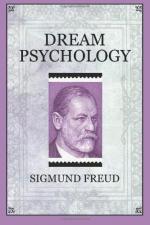Thanks to the established connection, there results at the next appearance of this want a psychic feeling which revives the memory picture of the former perception, and thus recalls the former perception itself, i.e. it actually re-establishes the situation of the first gratification. We call such a feeling a wish; the reappearance of the perception constitutes the wish-fulfillment, and the full revival of the perception by the want excitement constitutes the shortest road to the wish-fulfillment. We may assume a primitive condition of the psychic apparatus in which this road is really followed, i.e. where the wishing merges into an hallucination, This first psychic activity therefore aims at an identity of perception, i.e. it aims at a repetition of that perception which is connected with the fulfillment of the want.
This primitive mental activity must have been modified by bitter practical experience into a more expedient secondary activity. The establishment of the identity perception on the short regressive road within the apparatus does not in another respect carry with it the result which inevitably follows the revival of the same perception from without. The gratification does not take place, and the want continues. In order to equalize the internal with the external sum of energy, the former must be continually maintained, just as actually happens in the hallucinatory psychoses and in the deliriums of hunger which exhaust their psychic capacity in clinging to the object desired. In order to make more appropriate use of the psychic force, it becomes necessary to inhibit the full regression so as to prevent it from extending beyond the image of memory, whence it can select other paths leading ultimately to the establishment of the desired identity from the outer world. This inhibition and consequent deviation from the excitation becomes the task of a second system which dominates the voluntary motility, i.e. through whose activity the expenditure of motility is now devoted to previously recalled purposes. But this entire complicated mental activity which works its way from the memory picture to the establishment of the perception identity from the outer world merely represents a detour which has been forced upon the wish-fulfillment by experience.[2] Thinking is indeed nothing but the equivalent of the hallucinatory wish; and if the dream be called a wish-fulfillment this becomes self-evident, as nothing but a wish can impel our psychic apparatus to activity. The dream, which in fulfilling its wishes follows the short regressive path, thereby preserves for us only an example of the primary form of the psychic apparatus which has been abandoned as inexpedient. What once ruled in the waking state when the psychic life was still young and unfit seems to have been banished into the sleeping state, just as we see again in the nursery the bow and arrow, the discarded primitive weapons of grown-up humanity. The dream is a fragment of the abandoned psychic life of the child. In the psychoses these modes of operation of the psychic apparatus, which are normally suppressed in the waking state, reassert themselves, and then betray their inability to satisfy our wants in the outer world.




